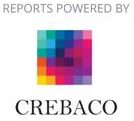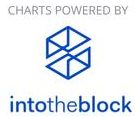
 Kadena LLC
Kadena LLC
Name
Kadena LLC
Summary
-Kadena is a public blockchain that aims to optimize for scalability and features a new smart contract language, dubbed Pact, which comes equipped with formal verification and upgradeable smart contracts.
-It was launched in 2016 by Will Martino and Stuart Popejoy.
-Kadena's public blockchain, Chainweb, is a scalable, sharded Layer 1 PoW network. It uses PoW (Proof of Work) consensus mechanism.
Rating
Symbol
KDA
Overview
Kadena aims to build a scalable, developer-friendly public blockchain that offers the same level of security as Bitcoin. To support this vision, Kadena introduces a new consensus method, a proof-of-work model called Chainweb, and a new smart contract language, called Pact. Its mission is to optimize its base layer for transaction throughput and developer adoption without resorting to second-layer functionality or scalability solutions. Second layer solutions tend to complicate application development, which is why providing a comprehensive set of tools on a single platform is arguably more developer-friendly. The team also claims that Kadena has no upper limit on the number of transactions it can process per second based on internal testing.
Kadena's native smart contract language, Pact, is designed to improve on common errors seen in Ethereum's Solidity, particularly its sensitivity to unlimited loops and lack of formal verification. . Pact smart contracts can also be upgraded at any time without requiring a hard fork.
Kadena also built a private blockchain that predates its public smart contract platform. The private blockchain, now known as Kadena Kuro (formerly ScalableBFT), uses the Byzantine Fault Tolerant (BFT) consensus mechanism and is optimized for enterprise-grade use cases.
Historical Price Movement (in INR)
Technology
Chainweb combines a number of parallel chains that operate individually in a single network. Each PoW chain operates the same currency and contains references (Merkle root subset) to the previous block of their peer chain, so peer chains can confirm each other's blocks and stay liquid can be transferred between strings. This approach is different from sidechains, as each individual chain has the same capabilities as the main chain. Chainweb's design started with the idea of adding Bitcoin's Simple Payment Verification (SPV, platform of lightweight clients) capabilities that allow users to verify a transaction without processing the entire Blockchain by querying the chain for a Merkle proof. Unlike Bitcoin, Kadena is account-based, not UTXO.
In Kadena, the SPV smart contract enables automatic cross-chain token transfers while managing the supply of a single currency on the network. Chainweb transfers move a token (or tokens) by deleting it on a chain and issuing a new token on a peer-to-peer chain. The SPV proof is used to verify that the initial deletion is complete before another chain can generate a new token. The deletion’s transaction ID can only be used once, so each SPV deletion proof can only allow a single create function.
Kadena uses Pact smart contract language designed to be readable and verifiable by computers. Instead of requiring the storage and calling of large streams of lower-level bytecode like EVM, the code stored in the Blockchain is exactly what the application developers wrote and can be read in its original form. Pact also provides a secure solution for implementing business logic on the blockchain, such as applying rules with clear error messages, modeling and maintaining database schemas, and authorizing users to perform sensitive operations. It is intentionally designed to be inclusive in the belief that such use cases are inappropriate in a resource-constrained blockchain environment. This property allows for formal verification where the code is transformed into a mathematical model of its function, which is then used to demonstrate that the properties of this model meet certain conditions.
Use of Native tokens in the ecosystem:
KDA is used to pay for gas and as a miner's reward for producing new blocks.
Founders & Project
77%
Investors
23%
Volume ( as of 30th May 2022)
$22,764,623
Total Supply
1,000,000,000 KDA
Circulating Supply
184,647,926.72 KDA
Crowd Sales
3 rounds of funding amounting to $15.87M
Funding
12/04/2018-SAFT Round 2 -$12.9M
30/01/2018-SAFT Round 1 -$2.25M
25/04/2017-Seed Round -$0.72M
Country
N.A.
Year Incorporated
2016
Registered Address
N.A.
Dispute Resolution and Governing Law
N.A.
Country Risk Assessment
N.A.
Founding Team
| Name | Designation | Education | Experience |
| Stuart Popejoy | CEO | University of California, BerkeleyBachelors, Comparative Literature | 32 Yrs |
| Will Martino | President | Yale UniversityEconomics and Mathematics, B.A., Mathematics and Economics, Fractal Geometry | 19 Yrs |


 Kadena LLC
Kadena LLC












